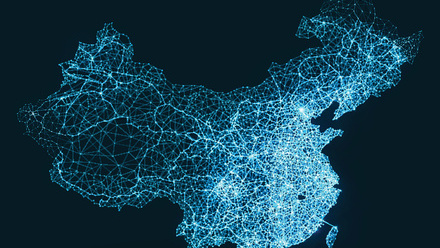Technology and Innovation programme activities
techUK bring members, industry stakeholders, and UK Government together to champion emerging technologies as an integral part of the UK economy. We help to create an environment where innovation can flourish, helping our members to build relationships, showcase their technology, and grow their business. Visit the programme page here.
Future Careers in Emerging Tech I 5 March
Join techUK for an inspiring afternoon exploring fields such as AI, quantum, semiconductors, and robotics. Taking place as part of National Careers Week and techUK's TechTogether campaign, this event will demonstrate the diverse range of early career opportunities spanning the UK’s thriving emerging tech sector.
Upcoming events
Latest news and insights
Learn more and get involved
Sign-up to get the latest updates and opportunities across Technology and Innovation.
Here are five reasons to join the Tech and Innovation programme
Join techUK groups
techUK members can get involved in our work by joining our groups, and stay up to date with the latest meetings and opportunities in the programme.
Become a techUK member
Our members develop strong networks, build meaningful partnerships and grow their businesses as we all work together to create a thriving environment where industry, government and stakeholders come together to realise the positive outcomes tech can deliver.
Meet the team

Sue Daley OBE
Director, Technology and Innovation

Sue Daley OBE
Director, Technology and Innovation
Sue leads techUK's Technology and Innovation work. This includes work programmes on AI, Cloud, Data, Quantum, Semiconductors, Digital ID and Digital ethics as well as emerging and transformative technologies and innovation policy. In 2025, Sue was honoured with an Order of the British Empire (OBE) for services to the Technology Industry in the New Year Honours List. She has also been recognised as one of the most influential people in UK tech by Computer Weekly's UKtech50 Longlist and was inducted into the Computer Weekly Most Influential Women in UK Tech Hall of Fame.
A key influencer in driving forward the tech agenda in the UK, in December 2025 Sue was appointed to the UK Government’s Women in Tech Taskforce by the Technology Secretary of State. She also sits on the UK Government’s Smart Data Council, Satellite Applications Catapult Advisory Group, Bank of England’s AI Consortium and BSI’s Digital Strategic Advisory Group. Previously, Sue was a member of the Independent Future of Compute Review and co-chaired the National Data Strategy Forum. As well as being recognised in the UK's Big Data 100 and the Global Top 100 Data Visionaries in 2020, Sue has been shortlisted for the Milton Keynes Women Leaders Awards and has been a judge for the Loebner Prize in AI, the UK Tech 50 and annual UK Cloud Awards. She is a regular industry speaker on issues including AI ethics, data protection and cyber security.
Prior to joining techUK in January 2015, Sue was responsible for Symantec's Government Relations in the UK and Ireland. Before that, Sue was senior policy advisor at the Confederation of British Industry (CBI). Sue has an BA degree on History and American Studies from Leeds University and a Master’s Degree in International Relations and Diplomacy from the University of Birmingham. Sue is a keen sportswoman and in 2016 achieved a lifelong ambition to swim the English Channel.
- Email:
- [email protected]
- Phone:
- 020 7331 2055
- Twitter:
- @ChannelSwimSue,@ChannelSwimSue,@ChannelSwimSue,@ChannelSwimSue

Laura Foster
Associate Director - Technology and Innovation, techUK

Laura Foster
Associate Director - Technology and Innovation, techUK
Laura is techUK’s Associate Director for Technology and Innovation.
Laura advocates for better emerging technology policy in the UK, including quantum, future of compute technologies, semiconductors, digital ID and more. Working alongside techUK members and UK Government she champions long-term, cohesive, and sustainable investment that will ensure the UK can commercialise future science and technology research. Laura leads a high-performing team at techUK, as well as publishing several reports on these topics herself, and being a regular speaker at events.
Before joining techUK, Laura worked internationally as a conference researcher and producer exploring adoption of emerging technologies. This included being part of the team at London Tech Week.
Laura has a degree in History (BA Hons) from Durham University and is a Cambridge Policy Fellow. Outside of work she loves reading, writing and supporting rugby team St. Helens, where she is from.
- Email:
- [email protected]
- LinkedIn:
- www.linkedin.com/in/lauraalicefoster

Kir Nuthi
Head of AI and Data, techUK

Kir Nuthi
Head of AI and Data, techUK
Kir Nuthi is the Head of AI and Data at techUK.
She holds over seven years of Government Affairs and Tech Policy experience in the US and UK. Kir previously headed up the regulatory portfolio at a UK advocacy group for tech startups and held various public affairs in US tech policy. All involved policy research and campaigns on competition, artificial intelligence, access to data, and pro-innovation regulation.
Kir has an MSc in International Public Policy from University College London and a BA in both Political Science (International Relations) and Economics from the University of California San Diego.
Outside of techUK, you are likely to find her attempting studies at art galleries, attempting an elusive headstand at yoga, mending and binding books, or chasing her dog Maya around South London's many parks.
- Email:
- [email protected]

Rory Daniels
Head of Emerging Technology and Innovation, techUK

Rory Daniels
Head of Emerging Technology and Innovation, techUK
Rory joined techUK in June 2023 after three years in the Civil Service on its Fast Stream leadership development programme.
During this time, Rory worked on the Government's response to Covid-19 (NHS Test & Trace), school funding strategy (Department for Education) and international climate and nature policy (Cabinet Office). He also tackled the social care crisis whilst on secondment to techUK's Health and Social Care programme in 2022.
Before this, Rory worked in the House of Commons and House of Lords alongside completing degrees in Political Economy and Global Politics.
Today, Rory leads techUK's Emerging Technology and Innovation activity, working with many of the UK's most innovative tech companies to convene key stakeholders, work through key challenges and opportunities for industry, showcase best practice, and shape Government's thinking around future technologies, sectors and industries.
Focus areas include Robotics, Immersive, Web3, Metaverse, Photonics, Space, Gaming, Creative, Innovation policy, university spin-outs, and Futures & Horizon Scanning.
- Email:
- [email protected]
- LinkedIn:
- https://www.linkedin.com/in/rorydaniels28/

Tess Buckley
Senior Programme Manager in Digital Ethics and AI Safety, techUK

Tess Buckley
Senior Programme Manager in Digital Ethics and AI Safety, techUK
Tess is a digital ethicist and musician. After completing a MA in AI and Philosophy, with a focus on ableism in biotechnologies, she worked as an AI Ethics Analyst with a dataset on corporate digital responsibility (paid for by investors that wanted to understand their portfolio risks). Tess then supported the development of a specialised model for sustainability disclosure requests. Currently, at techUK, her north star as programme manager in digital ethics and AI safety is demystifying, and operationalising ethics through assurance mechanisms and standards. Outside of Tess's work, her primary research interests are in AI music systems, AI fluency and tech by/for differently abled folks.
- Email:
- [email protected]
- Website:
- tessbuckley.me
- LinkedIn:
- https://www.linkedin.com/in/tesssbuckley/

Usman Ikhlaq
Programme Manager - Artificial Intelligence, techUK

Usman Ikhlaq
Programme Manager - Artificial Intelligence, techUK
Usman joined techUK in January 2024 as Programme Manager for Artificial Intelligence.
He leads techUK’s AI Adoption programme, supporting members of all sizes and sectors in adopting AI at scale. His work involves identifying barriers to adoption, exploring solutions, and helping to unlock AI’s transformative potential, particularly its benefits for people, the economy, society, and the planet. He is also committed to advancing the UK’s AI sector and ensuring the UK remains a global leader in AI by working closely with techUK members, the UK Government, regulators, and devolved and local authorities.
Since joining techUK, Usman has delivered a regular drumbeat of activity to engage members and advance techUK's AI programme. This has included two campaign weeks, the creation of the AI Adoption Hub (now the AI Hub), the AI Leader's Event Series, the Putting AI into Action webinar series and the Industrial AI sprint campaign.
Before joining techUK, Usman worked as a policy, regulatory and government/public affairs professional in the advertising sector. He has also worked in sales, marketing, and FinTech.
Usman holds an MSc from the London School of Economics and Political Science (LSE), a GDL and LLB from BPP Law School, and a BA from Queen Mary University of London.
When he isn’t working, Usman enjoys spending time with his family and friends. He also has a keen interest in running, reading and travelling.

Chris Hazell
Programme Manager - Cloud, Tech and Innovation, techUK

Chris Hazell
Programme Manager - Cloud, Tech and Innovation, techUK
Chris is the Programme Manager for Cloud, Tech and Innovation
- Email:
- [email protected]

Elis Thomas
Programme Manager, Tech and Innovation, techUK

Elis Thomas
Programme Manager, Tech and Innovation, techUK
Elis joined techUK in December 2023 as a Programme Manager for Tech and Innovation, focusing on Semiconductors and Digital ID.
He previously worked at an advocacy group for tech startups, with a regional focus on Wales. This involved policy research on innovation, skills and access to finance.
Elis has a Degree in History, and a Masters in Politics and International Relations from the University of Winchester, with a focus on the digitalisation and gamification of armed conflicts.
- Email:
- [email protected]
- Website:
- www.techuk.org/
- LinkedIn:
- https://www.linkedin.com/in/elis-thomas-49a1aa1a1/

Ella Shuter
Junior Programme Manager, Emerging Technologies, techUK

Ella Shuter
Junior Programme Manager, Emerging Technologies, techUK
Ella joined techUK in July 2025 as Junior Programme Manager for Emerging Technologies.
In her role, Ella supports the design and delivery of four to six-month sprint campaigns. These identify emerging technologies of interest to members and Government, share industry best practice, champion relevant sectors and industries across the UK, and work through key challenges and opportunities to drive the development, application and commercialisation of these technologies.
Before joining techUK, Ella completed an internship at Digital Catapult, supporting across public affairs, policy and the organisation's programmes. She also has experience working in an MP's Parliamentary and Constituency Office.
Ella holds a BSc in Politics and International Relations from the University of Bristol.
- Email:
- [email protected]
- LinkedIn:
- https://www.linkedin.com/in/ella-shuter-264158244/

Harriet Allen
Programme Assistant, Technology and Innovation, techUK

Harriet Allen
Programme Assistant, Technology and Innovation, techUK

Sara Duodu
Programme Manager ‑ Quantum and Digital Twins, techUK

Sara Duodu
Programme Manager ‑ Quantum and Digital Twins, techUK
Sara joined techUK in October 2025 as Programme Manager for Quantum and Digital Twins.
Before joining techUK, Sara worked at Capital Enterprise as Research Lead, where she focused on policy research related to the UK’s startup ecosystem. During her time there, she co-authored a flagship report unpacking what quantum startups in the UK need to grow and stay in the UK.
Sara holds a Master of Global Affairs (Innovation Policy & Global Security) from the Munk School of Global Affairs & Public Policy, and an MA (History) and a BA (History & Political Science) from the University of Western Ontario.
Outside of work, Sara enjoys reading, playing rugby, and watching any and all sports.







